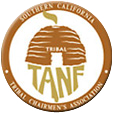WASHINGTON, D.C. — After buying a new chunk of land 50 miles north of San Francisco, the Federated Indians of Graton Rancheria just broke ground on a new, Las Vegas-style casino. It will be the largest in the Bay Area, with 3,000 slot machines, 200 hotel rooms, a spa, bars, restaurants and parking for more than 5,000 cars.
In New York, the Shinnecock Indian Nation is considering Long Island as a site on which to build the Big Apple’s first tribal casino.
And in Washington state, the Spokane Tribe of Indians wants a new 13-story casino and hotel next to the Fairchild Air Force Base, prompting fears that the city will become “Spo-Vegas.”
The plans are extraordinary for one reason: In all three cases, the tribes want to build their palaces on new land that’s not part of their original reservations.
The expansions are the latest twist in the nation’s Indian casino wars, and they mark a major shift for the tribes, which already run 385 casinos and bingo halls in 29 states.
Since the U.S. Supreme Court cleared the way for large-scale Indian gambling 25 years ago, tribes have been forced to keep the majority of their casinos on reservation land held in trust by the federal government, usually in remote regions far from public view.
Indian tribes across the country are ready to bust out, bringing gambling to the same land that was taken from them so long ago, when the U.S. government executed its bloody campaign to relocate Indians to a patchwork of lands across the country and eventually to reservations.
In Oklahoma, the Kialegee Tribal Town proposed a casino half a continent away, on the coast of Georgia, on land that it said it once occupied, raising the specter of tribes going across state lines to pursue new gambling ventures.





